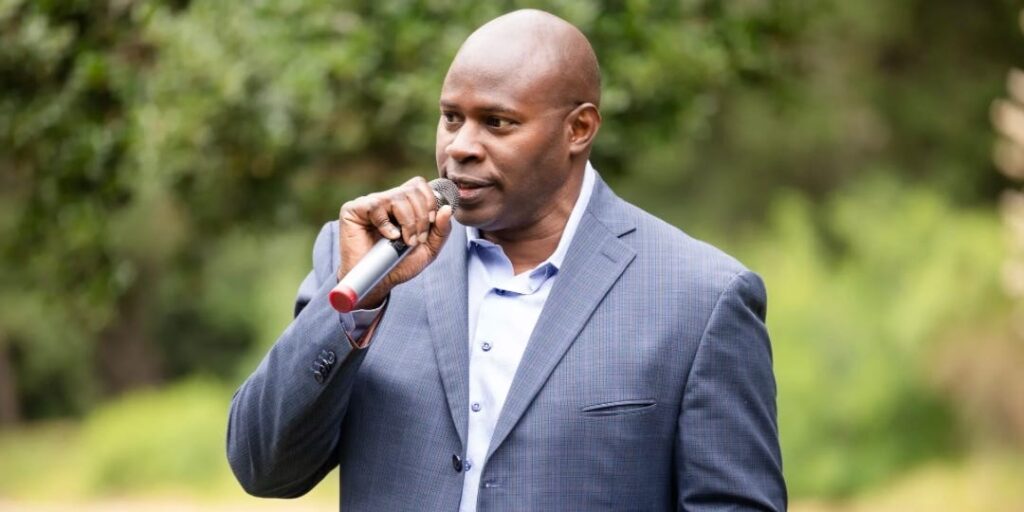This as-told-to essay is based on a conversation with Wendell Tull, a 56-year-old former recruiter for Nvidia and Slack. His identity and former employment have been verified. This story has been edited for length and clarity.
I worked in recruitment for over 25 years, from university admissions to a large staffing agency, to working as a campus recruiting manager for Slack Technologies and Nvidia.
In all of my recruiting roles, I was responsible for hiring people and bringing them on board, either as interns, new college grads, or experienced hires.
Today, I run an interview prep company called TullOne. I help people master master the interview process. I mostly work with early-career talent, but through LinkedIn, I get a lot of experienced workers reaching out. Many of them are facing ageism or have been laid off after working somewhere for two decades, and they can’t figure out why they’re not getting a second call back.
As a Gen X myself and as someone who has worked in the recruiting space for years, I see red flags that this category of people is doing in interviews that are putting them at a disadvantage. Here are four tips seasoned workers on the job hunt should keep in mind:
Check your ego
A candidate’s attitude comes across in the interview right off the bat. Seasoned professionals will see a recruiter on camera around their kid’s age, and all of a sudden, this ego sets in.
They may be asked about how they organize their day or run a campaign, and think, “I can’t believe this person’s asking me stuff that I could teach a master class in.”
When I worked as a recruiter, I assumed that candidates had the background and experience to do the job if they got the interview. I was more concerned about the fit on the team.
So, I would ask probing questions about what they do in their free time. Work is important, but teams also engage in social activities. Recruiters don’t want to hire the person who thinks they’re too experienced or too mature. They want someone to be a part of the team. It doesn’t matter if you’re 55, 35, or 25 — you need to show you want to be part of a group. That’s a big part of adaptability.
Seasoned veterans who are looking for work also sometimes get turned off when someone offers a contract opportunity. If you’re not working right now, go in as a contractor because you can prove your ability to work in that role.
Keep it succinct
Many candidates view the 30-minute interview as a time slot to squeeze in as much as they can.
Often, candidates come off as so excited to share everything that they bring to the table that they go on and on without taking a moment to listen to any other questions the person might have.
Sometimes they’ll start talking about stuff they did 30 years ago. Focus on the last 10 to 15 years. Some of the stuff from 30 years ago may be super valuable, but that interviewer was probably still in elementary school. They want to know how relevant you are today.
Candidates should view a 30-minute interview as an elevator pitch. It’s an opportunity to give the bullet points that will make this person want to schedule a follow-up interview.
Come across as tech-savvy
Experienced workers are used to walking into a room and making a first impression. Many seasoned workers haven’t figured out how to communicate their experience on a virtual platform.
For example, it’s natural to look at yourself when you’re on a video call, but you should really aim to look at the camera instead.
Some older, more seasoned professionals may also have had an administrative assistant putting together decks or setting up calls. Recruiters want to see that a candidate is technical enough to come in and start doing the work. They want to know they won’t be surprised by seeing an expense report.
If someone brings up something in an interview, whether it’s Expensify or a project management tool like Asana, you can watch free videos about how to use the platform on YouTube, Khan Academy, or Coursera. LinkedIn offers all these different courses, too. Many of them are free.
Study the website
The old-school generic question of “What do you know about us?” is for the recent college grad. The experienced hire had better be checking out the press room and speaking to the new product that was just released, or an area the company is struggling with.
Companies tend to have really good websites, and their media page has everything that they’re working on. Candidates should spend a day living in the media room, looking through their press releases. They should be able to speak about those recent announcements as if it’s the only company they’re interested in.
A younger candidate might not be able to show they’re as well-versed, but for seasoned professionals, this is the opportunity to show they can become experts on an organization.
Read the full article here
















